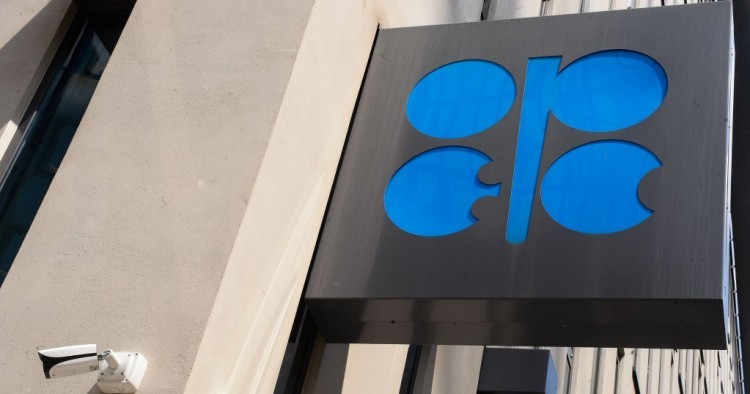At its weekend meeting the OPEC+ coalition of 23 oil-producing countries gave itself a well-deserved pat on the back. Between April and June, its restrained output has succeeded in restoring oil prices from their lows of around $15 per barrel to over $40 per barrel. This is all while global oil demand is slowly recovering as some economies gradually come out of COVID-19 lockdown and supply is down significantly as the market rebalances. Its new decision to persist with cutting close to 10 million barrels per day (bpd) of collective output beyond the May-June period through July, should help to support oil prices further.
However, a multitude of challenges remain. First, the group needs to find a means of enforcing production quota restrictions on four members that failed to comply with the April pact. Second, as oil prices edge up, it faces the risk of shale oil producers loosening their production curtailment, and possibly reflooding the market. Other lesser risks will come from Mexico’s refusal to abide by any cuts to its own production and Libya’s potential gradual return to the market if it can bring oil production operations back on-line.
Of all the challenges to the OPEC+ effort, Iraq remains the biggest and most daunting. Caught between a huge deficit to its finances amid total reliance on oil revenues and stringent agreements with international oil companies (IOCs) operating its oil fields, Baghdad has been unable to fulfill its commitment to cut 1 million bpd in May or June. At the meeting, it promised to compensate for the missed targets between July and September. That would inflict a lot of pain on OPEC’s second-largest producer. Iraqi Finance Minister Ali Allawi stressed on June 7 that his cash-strapped country is fully committed to fulfilling the required cuts. To do so, Baghdad has limited options. It would have to pay its foreign operators for barrels they won’t produce, adding to debts to IOCs accumulated over the past months. It could negotiate a deferred payment plan with them, with interest, betting on higher oil prices in the coming months to make up for the loss. It will be forced to borrow heavily, internally and externally, to pay its public sector salaries. However, this dire state offers a silver lining if the new government of Mustafa al-Kadhimi decides to seize the opportunity to implement painful and long overdue economic and financial reforms. That would render any future OPEC cut less devastating to Iraq’s coffers.
Ruba Husari is an expert and analyst on Middle East energy issues based in Dubai. She is the managing director of OZME Consultants and a non-resident scholar at MEI. The views expressed in this piece are her own.
Photo by Omar Marques/SOPA Images/LightRocket via Getty Images
The Middle East Institute (MEI) is an independent, non-partisan, non-for-profit, educational organization. It does not engage in advocacy and its scholars’ opinions are their own. MEI welcomes financial donations, but retains sole editorial control over its work and its publications reflect only the authors’ views. For a listing of MEI donors, please click here.













